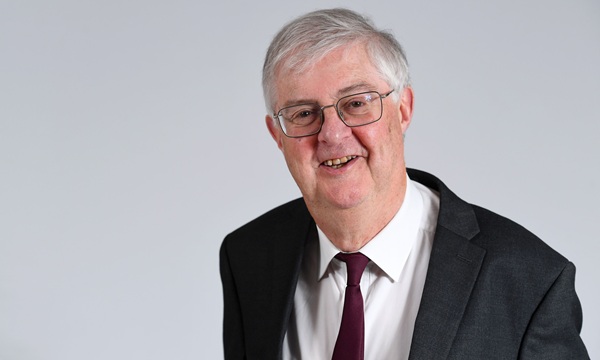Even more cardboard and textile waste from Caerphilly is being recycled and reused thanks to high-temperature drying floors powered by biomass energy at the Bryn Group mixed recycling facility at Gelligaer in South Wales.
Wet cardboard and textiles such as carpets and mattresses cannot be easily reused and often end up being sent to neighbouring energy-from-waste facilities to be incinerated.
A biomass incinerator was first installed as an extension to the mixed recycling facility (MRF) in March 2017 but the exhaust flue needed to be extended that June to make the combustion more efficient and to aid the dispersal of emissions. While the initial installation was within ‘permitted development’, the extended flue required planning permission, so a retrospective application was made in January 2018.
Paul Colley, recycling manager at Bryn Group, said:
“We worked with planning officers to address potential concerns, all of which were quickly and easily resolved. The visual impact of the stainless-steel flue was one of those issues, so we agreed to paint it. The Council chose a nice ‘moss green’ colour.
“Despite meeting all relevant policy conditions and Caerphilly Council’s professional officers recommending that the biomass building and flue should be granted approval, councillors denied planning permission in September 2018. That was very disappointed and totally unreasonable.”
The councillors’ decision was immediately appealed by Bryn Group and overturned by the Welsh Government Planning Inspectorate in February 2019. Furthermore, the Inspector agreed that councillors had “behaved unreasonably” leading to Bryn Group incurring “unnecessary and wasted expense”. An order was made that Caerphilly Council must pay Bryn Group’s appeal costs.
Throughout that period, the biomass plant was still permitted to burn clean wood, which enabled Bryn Group to use the biomass-powered heated floors to dry materials so they can added to the weekly cardboard and textile consignments destined for reuse around the world. Those uses include new packaging (cardboard) and artificial equine surfacing (mattresses and furniture padding).
The MRF biomass proved to be so successful that a second biomass incinerator was installed in March 2018 within the old in-vessel composting (IVC) building, no longer used for composting since the company’s state-of-the-art anaerobic digestion (AD) power plant went online in 2016.
That second biomass incinerator also uses clean woodchip to heat two new high-temperature drying floors that dry recycled cattle bedding and the solid fibrous materials that has been separated from slurry produced by the dairy herd. The liquid from the slurry is fed into the AD plant, along with food waste.
Both biomass incinerators have been fitted with continuous monitoring equipment and CCTV to monitor the flues, which means they can be monitored and controlled remotely. After months of planning and compliance testing, both biomass plants have received full certification and can now burn reclaimed wood such as old furniture, doors and kitchen carcasses, as well as clean woodchip.
In total, both biomass incinerators will consume 4,000 tonnes of reclaimed wood each year, fuelling improved recycling figures for Caerphilly and reducing the use of consumable materials on the farm as well.







